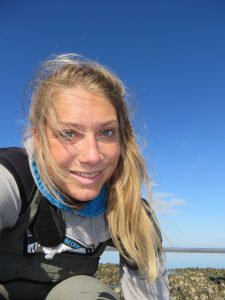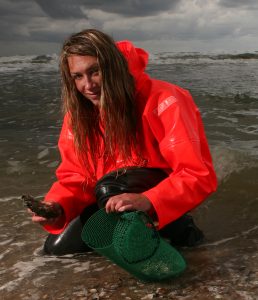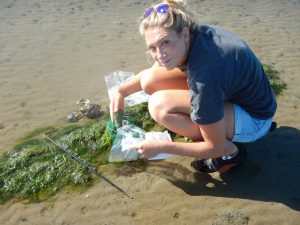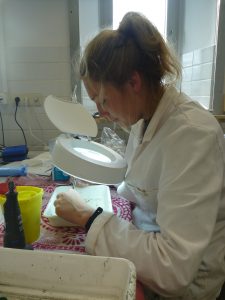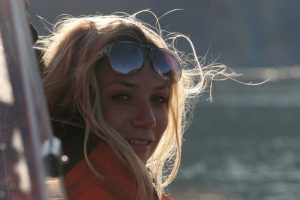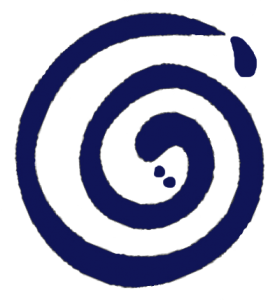Thanks for your interest in my website!
I am a graduated Marine Ecologist (Ph.D.) and Science Communicator (MSc), and via this website, I like to share my scientific work and information on interesting scientific outreach activities. The website also serves as a digital collection of my communications with the media that took place during my career. The website was born under the name ‘para-sea-site’, referring to a website for the sea and my weird passion for marine parasites.
This is my story
Unlike many marine biologists, who already knew they want to become the next Jacques Cousteau when they were four years old, I did not exactly know what to study after high school. So, at the age of 18, I went travelling as far as I could, to New Zealand on the other side of the world, looking for answers. After a lot of fun, job misery and sightseeing on the North Island, I found the beginning of my scientific path during a whale watching tour in Kaikoura on the South Island, where I realized that I liked being at the ocean, but that I did not know anything about it.
Back in the Netherlands, I started studying at Utrecht University and later at the University of Groningen, where I completed a BSc Biology (major Ecology & Evolution, minor Marine Biology) and an MSc Marine Biology. Scientific internships brought me to beautiful Spitsbergen and the Dutch island of Texel, where I started to become interested in the field of marine disease ecology. First via the studying of the immune system of Arctic goslings and second via the study of the effects of marine invasive species on parasite transmission, of which the latter developed in my first first-author publication in Ecosphere.
During my studies, I realized that people are very interested in the stories of marine biologists. Often people say that they always wanted to be marine biologists themselves and they like to hear stories about your research. Our ‘office life’ is so different than that of most people and therefore our stories are very appealing to them. However, during my studies, I also realized that surprisingly few marine biologists actually tell their stories and that they are not so active with communicating their science to the public. That is when I realized two things 1) I wanted to know why and 2) I wanted to be different. So, I started to pursue an MSc Science Communication too and decided to apply the learned communication tools throughout my scientific career.
The successful internship at the island of Texel, lead me to a Ph.D. position at the Royal Netherlands Institute for Sea Research (NIOZ) under the supervision of promotor prof.dr. Jaap van der Meer of the VU University of Amsterdam and co-promotor David Thieltges. During my Ph.D., I studied the effects of marine invasive species on parasite-host interactions, with a particular focus on the invasive Pacific oyster. In this Youtube movie, produced by NIOZ in cooperation with ScienceMedia, I tell more about my Ph.D. research, working at the NIOZ and life on Texel. On 3 November 2017, I successfully defended my Ph.D. thesis, for which I was awarded a VLIZ award for most innovative North Sea research.
After obtaining my Ph.D. degree followed a period of writing grant proposals, publishing papers and applying for jobs, which eventually let me to a postdoc position at the University of Bordeaux, where I am since the beginning of September 2018 stationed at the Marine Station of Arachon (UMR EPOC 5805 lab). Here, I take part in the EU Interreg COCKLES project (Co-Operation for Restoring CocKle SheLlfisheries and its Ecosystem Services in the Atlantic Area (AA)) until the end of January 2020. I will be responsible for Work Package 6 (Action 4). This task involves 1) the identification of the carrying capacity of ecosystems for cockles and 2) the investigation of cockles food consumption and their competition with other major suspension feeders in the ecosystems.
